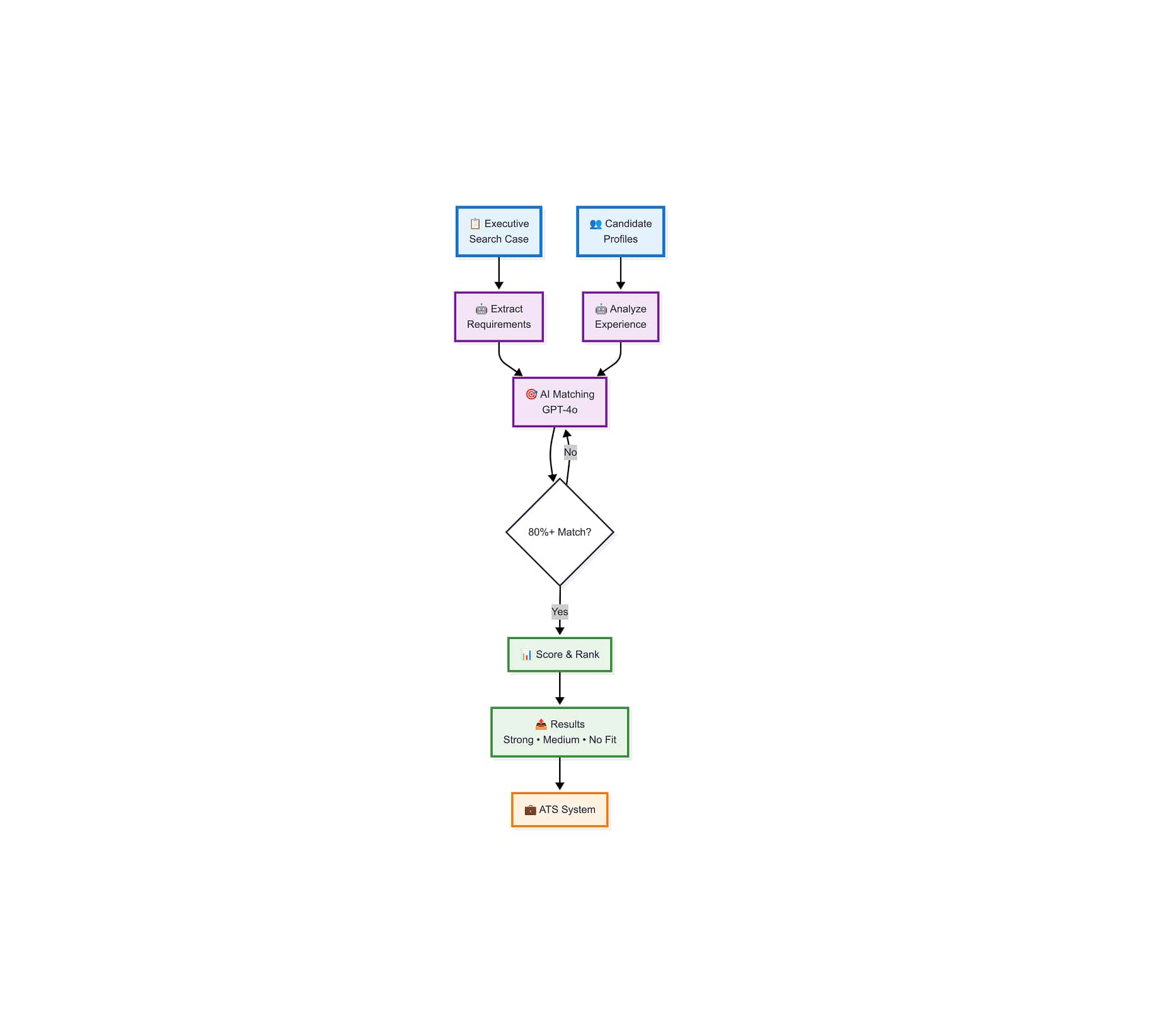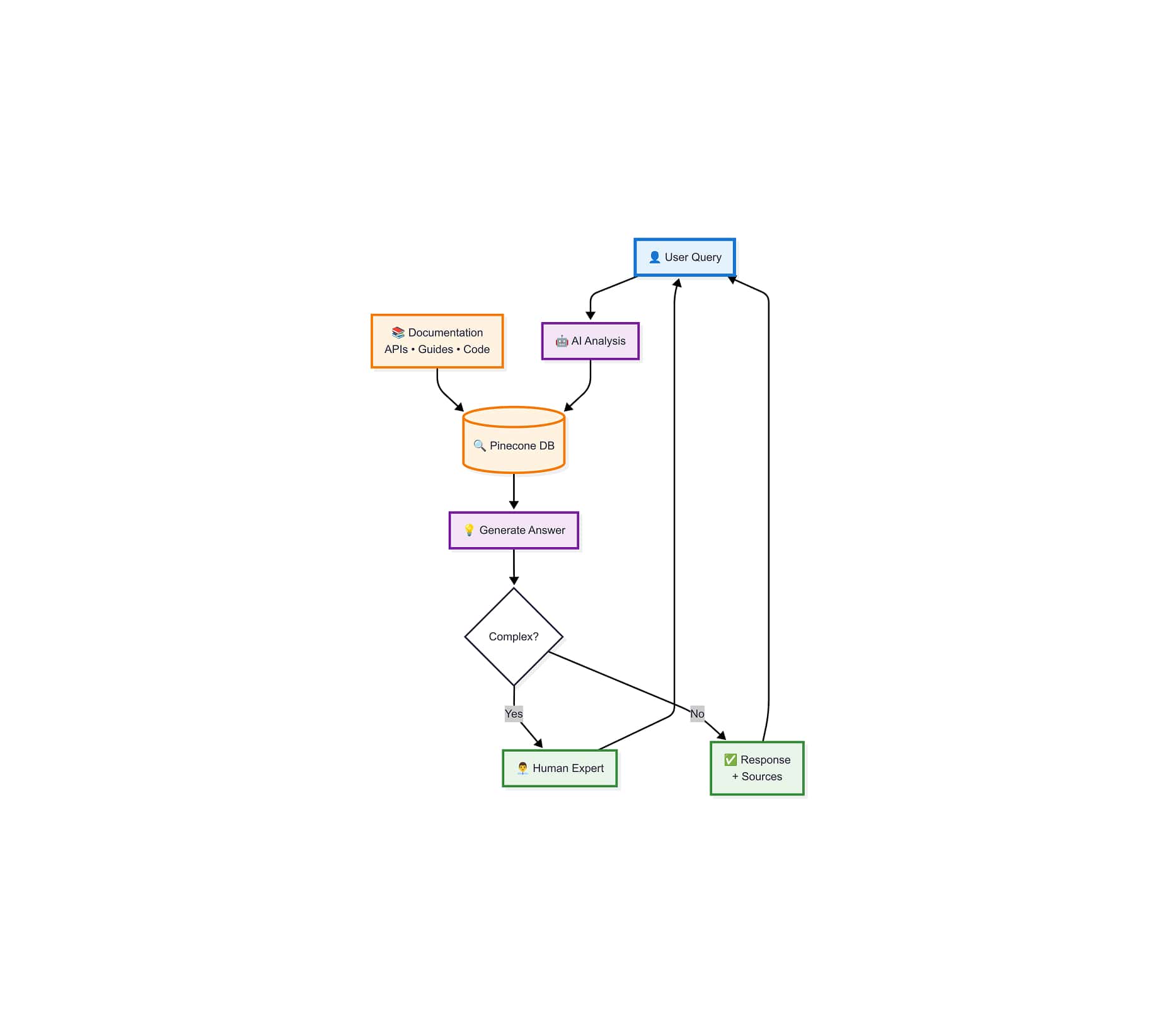
AI Agent Development Services
Develop ethical and secure AI agents with transparent reasoning and safeguards against harmful actions.
Business goal alignment
Most AI agent development projects fail because they solve the wrong problems. Get to the heart of the issue with our structured discovery workshops. IIBA-certified Business Analysts identify atomic wins, define success metrics, and test assumptions with a sandbox prototype.
AI output validation
We use multi-layer checks to prevent plausible but dangerous errors and actions based on hallucinations. These checks include reverse validation, automated factuality checks, source document match, and human feedback mechanisms.
Clear reasoning
LLMs can easily jump to conclusions without external validation. We provide the necessary validation using ReAct and custom chain-of-thought. The tasks are broken into modular steps using LangChain agents. At every step, the agent logs its reasoning for extra transparency.
Risky action prevention
MindK fine-tuning increases the aversion to unsafe actions. Any agent-initiated action is assigned a risk score using LangChain. A multistep planner-reviewer first simulates any risky actions in a “dry run” mode. Critical decisions require human approval or are blocked with code/prompt constraints.
AI agents for every team
Customer Support


Sales & Marketing
Human Resources


Finance & Accounting
Operations


Supply Chain
Want to see our AI agents in action?
AI discovery workshop
We interview stakeholders and run workshops to clearly understand your goals and business context. Our engineers analyze your current systems and integrations, while professional Business Analysts define user needs, technical constraints, and measurable success criteria.
What you get: detailed requirements, use-cases, risk assessment, and cost estimate.
Design & data preprocessing
The next step is to define a viable AI solution that meets the requirements. This includes a feasibility study, feature definition, technology selection, architecture design, as well as planning of scalability, performance, and security measures. The team then collects, validates, and transforms data from structured/unstructured sources. We also label or annotate the data if needed for fine-tuning.
What you get: solution architecture, feasibility assessment, development plan, preprocessing pipeline, prepared datasets, and vector databases.
AI agent development
We select and fine-tune the best LLMs for the task, optimize them for domain-specific accuracy, and develop sophisticated prompting strategies. Advanced prompt engineering techniques include chain-of-thought reasoning, few-shot examples, and role-based instructions to maximize accuracy before considering fine-tuning. After evaluating the models against performance metrics, we set up a robust retrieval pipeline, LangChain orchestration logic, an enterprise integration layer, and the user interface.
What you get: optimized prompts, fine-tuned LLM, RAG layer, secure APIs integration layer, front-end interface, documentation, user acceptance testing (UAT).
Infrastructure setup
DevSecOps engineers provision a robust and secure infrastructure (AWS/Azure/GCP/on-prem) to deploy the AI agent. They implement the best security practices (encryption, IAM, compliance audits) and deploy the agent with Terraform and Kubernetes.
What you get: scalable infrastructure, compliance documentation, security assessment.
Testing and validation
The QA team ensures the accuracy, reliability, and compliance of the AI before it goes live. This step includes functional testing, performance testing, vulnerability scans, penetration tests, and culminates with user acceptance testing (UAT).
What you get: QA reports, performance benchmarks, security, and vulnerability reports.
Deployment and monitoring
The final step begins with the agent going live. We continue monitoring the AI performance and metrics to resolve any issues quickly. The team periodically updates data sources, embeddings, and knowledge bases and fine-tunes the agent based on feedback.
What you get: production-ready AI, support, monitoring dashboards, ongoing updates.
Industry-specific AI agents
What
our
clients
say
Let's work together
Send us a brief description of your challenges. Within 24 hours, we'll contact you to set up a free discovery call with our AI agent development company.
FAQ
- What types of AI agents do you build?
Our agentic AI development services include building retrieval-augmented agents for technical support, executive search, compliance automation, sales enablement, and internal knowledge access. These agents understand context, execute tasks, and integrate into complex enterprise workflows.
- Can your AI agents integrate with our existing systems?
Yes. We offer API-first architecture with connectors for Salesforce, HubSpot, Workday, Greenhouse, Zendesk, and custom internal systems via REST, GraphQL, and event-based triggers.
- What are the potential savings that result from your AI agent development services?
Clients typically cut response times by 60–80%, reduce manual task load by 40–70%, and eliminate repetitive knowledge retrieval. ROI is usually seen within 6–12 weeks of deployment.
- How do you protect sensitive data?
All data is encrypted in transit and at rest (AES-256/TLS 1.2+). Our AI agent development solutions support role-based access controls, isolated environments, zero-retention model options, and deploy in client-owned VPCs if required.
- How do you ensure high accuracy with minimal hallucinations?
Our LLM development company uses retrieval-augmented generation (RAG), enforces source-grounded responses, applies hard/soft validation thresholds, and fine-tunes models when domain precision is critical. Every output is traceable back to the source.
- How long does it take to launch a custom AI agent?
Initial version in 3-6 weeks for most use cases. More complex deployments with integrations and fine-tuning take 8-12 weeks. Alternatively, MindK can customize our readymade agents for companies that need faster results with agentic process automation.
- What kind of involvement is expected from our internal team?
Our AI agent development company usually needs access to existing documents (FAQs, SOPs, profiles, APIs), typical user queries, system integration details, and your desired response standards.
We’ll also need 2-4 hours a week from 1-2 stakeholders for feedback, access, and validation.
Our team handles the rest, including data ingestion, infrastructure setup, and end-to-end deployment.
- What are the limitations of advanced AI agents?
Despite its advantages, employing RAG or similar retrieval-augmented technologies comes with considerations:
Data Quality: requires high-quality, regularly maintained knowledge bases to ensure effective retrieval.
Infrastructure complexity: necessitates additional infrastructure for indexing, retrieval, and storage (e.g., vector databases, embeddings management).
Latency: retrieval processes add latency; optimization is crucial for responsiveness.









